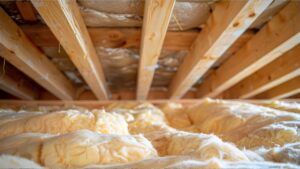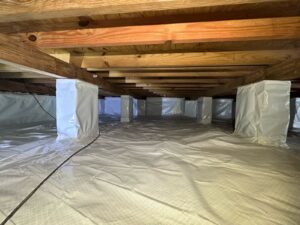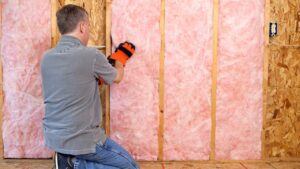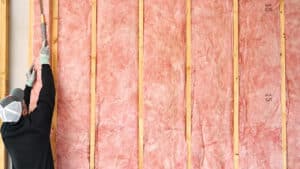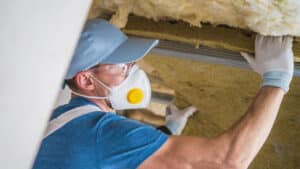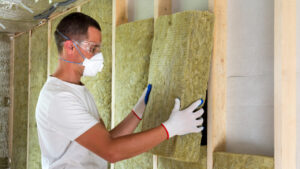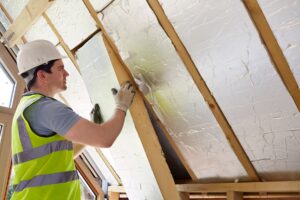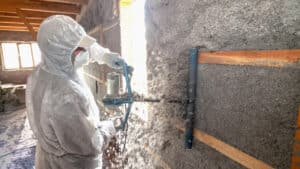If you want to make your home more energy-efficient, one of the first steps is understanding insulation and its R-value. Insulating your home properly can help keep temperatures comfortable in any season by regulating indoor temperature and improving air quality. Not only does adequate insulation reduce energy costs and improve comfort, but it also helps protect against noise pollution from outside sources. So what exactly is this mysterious “R-value” that decides how effective an insulation product will be? Read on to find out the answer — along with tips for choosing the right insulation type for maximum cost savings and improved efficiency!
What is the R-Value of Insulation?
The R-value of insulation is an important metric used to measure the ability of a material or assembly to resist heat flow. It is calculated by measuring how well the insulation can prevent heat loss or gain between two areas. R-value is numerically expressed in units of thermal resistance, such as RSI (metric) or R (Imperial). When selecting insulation for a home, the R-value per inch is often used to calculate the overall R-value needed based on desired temperature assurance and climate zone. R-values are essential because they relate directly to heating energy cost, comfort levels, and atmospheric pollutants from buildings. Generally speaking, higher R-values have more ability to reduce energy use and lower costs, although other factors must also be considered when selecting materials for adequate insulation.
How the R-value of Insulation is Calculated
The R-value of insulation is an important factor when looking at building envelope design. R-value is a measure of thermal resistance, used to quantify how well an item of insulation materials can resist heat transmission. It’s calculated by dividing the thickness of the insulation material by its thermal conductivity (the amount of heat that can pass through it). This R-value depends on several factors such as the type of insulation being used, the climate zone where it’s being installed, and other environmental considerations such as air movement and infiltration levels. R-values are also affected by temperature variations – for example, the R-value may be higher in cold weather compared to hot weather. It’s important to assess R-values properly when evaluating potential building envelope designs, to ensure maximum energy efficiency when using insulation materials.
How to Choose the Perfect Insulation Type for Your Home: 7 Effective Tips
Insulating your home is one of the best ways to improve its energy efficiency, reduce energy costs, and make your home more comfortable. But with so many types of insulation available, it can be hard to know which type is right for you. Here are 7 tips for choosing the right insulation type.
Tip # 1. Consider Your Climate
Different climates require different types of insulation. For example, in colder climates, it’s best to use batt insulation or spray foam insulation because they do a better job of keeping the heat in. In warmer climates, you may want to opt for a more lightweight option like loose-fill cellulose or fiberglass batts.
Tip # 2. Consider Your Budget
Different types of insulation come at different price points so it’s important to consider your budget when making your decision. If you’re on a tight budget, you may want to opt for an affordable option such as fiberglass batt insulation or loose-fill cellulose. On the other hand, if you have some money to spend, investing in spray foam or rigid foam board could give you better results in the long run.
Tip # 3. Think About Installation
While some types of insulation are easy enough for DIYers to install on their own (such as fiberglass batts), others require professional installation (such as spray foam). So before deciding what type of insulation you want to use, think about whether or not you’ll need help installing it and factor that into your decision-making process.
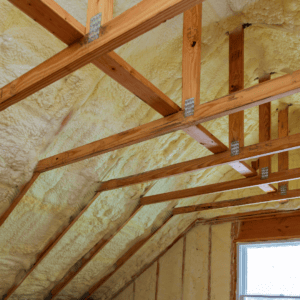 Tip # 4. Understand R-Values
Tip # 4. Understand R-Values
R-values measure the ability of an insulating material to resist heat flow; higher R-values represent more effective insulators while lower R-values represent less effective insulators. When comparing different types of insulation materials, be sure to look at their respective R-values so that you can make an informed decision about which material is right for your needs.
Tip # 5. Look at Noise Reduction Capabilities
Some forms of insulation are better than others when it comes to reducing noise from outside sources such as traffic or neighboring homes; this is particularly important if noise reduction is a priority for you and your family when selecting an insulating material. Be sure to research different materials’ soundproofing capabilities before deciding which type will work best for your home’s needs.
Tip # 6. Consider Other Benefits
Beyond just providing energy efficiency, certain types of insulation offer additional benefits such as mold resistance and fire protection; these benefits should also be taken into account when making a selection. Knowing what other advantages each type offers can help point you toward the right choice.
Tip # 7. Get Professional Help
If all else fails, don’t hesitate to call in professional home insulation contractors who can provide guidance and advice on which type of insulation would work best in your particular situation. It’s always better to be safe than sorry when it comes to making decisions about something as important as a home improvement!
No matter what type of insulation option works best for your needs, there are plenty of choices available that can help keep your home comfortable while also saving money on energy bills. With these 7 tips, we hope that we’ve been able to provide some clarity around choosing the perfect type of insulation for your home so that you can get started with making improvements today! Good luck!
Finally, if you need home insulation contractors, you can contact Universal Insulation Doctor, we provide all services and support related to home insulation.

